PICTURING THE PLANETS
Tech Magazine ZA
|November 2024
Our knowledge of other worlds in the Solar System | has grown enormously since the dawn of the Space Age, along with ever more detailed photographs|

M ORE THAN 3 000 YEARS AGO, BABYLONIAN ASTRONOMERS I REALISED THAT FIVE BRIGHT points of light moved across the night sky in a different way from all the other stars. These were the planets we now call Mercury, Venus, Mars, Jupiter and Saturn.
In those early days, the only way to observe * astronomical objects was with the unaided eye, which made it impossible to discern any detail. A planet looked virtually identical to any other star, the only difference being its distinctive wandering motion. The very word 'planet' comes from the Greek planētēs, meaning 'wanderer'.
The next major step forward came in 1609, when Galileo first observed the night sky with an early telescope. This showed the planets to be extended discs rather than star-like points of light, and it was only with this discovery that people came to realise that the planets could be other worlds like Earth. As telescopes improved, two further worlds were discovered that had previously been too faint to observe: Uranus in 1781, followed by Neptune in 1846.
The first person to see surface features on another planet was Dutch astronomer Christiaan Huygens, who made a pencil sketch of Mars in 1659. Later observers of the Red Planet spotted white areas around the poles, which were speculated to be ice caps, as well as clouds and evidence of changing seasons. Such discoveries led to fanciful portrayals of Mars as an Earth like world, complete with vegetation and maybe even inhabitants - the latter idea bolstered by the supposed observation of linear features erroneously dubbed 'canals'.
These wild speculations only came to an end in 1964 -just 60 years ago - when a NASA spacecraft finally took the first close-up photographs of the Red Planet.
 PHOTOGRAPHING OUR HOME PLANET
PHOTOGRAPHING OUR HOME PLANET このストーリーは、Tech Magazine ZA の November 2024 版からのものです。
Magzter GOLD を購読すると、厳選された何千ものプレミアム記事や、10,000 以上の雑誌や新聞にアクセスできます。
すでに購読者ですか? サインイン
Tech Magazine ZA からのその他のストーリー

Tech Magazine ZA
Hack your life
These tips and tricks can help make your tech life simpler and more convenient
1 mins
November 2024

Tech Magazine ZA
SPACE FOR EVERYONE
Helen Ling was a pioneer in maths and computer science, and helped pave the way for many brilliant women who followed her.
1 min
November 2024
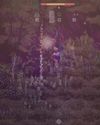
Tech Magazine ZA
GETTING LOST IN THE GARDEN PATH
What could be a cosy, relaxing game falls short thanks to bugs and unintuitive gameplay
1 mins
November 2024
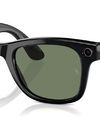
Tech Magazine ZA
LOOKING AHEAD
Ever wanted to see into the future? Well, now you can ... sort of
2 mins
November 2024

Tech Magazine ZA
DAILY GRIND
Welcome to the next generation of pod machines
1 mins
November 2024

Tech Magazine ZA
CUTTING EDGE
Science, technology, and research news from around the world.
11 mins
November 2024
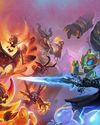
Tech Magazine ZA
HOUSE OF CARDS
After revisiting Blizzard's popular free-to-play deck builder game based on the Warcraft series, we look to see if they retained and built on the success of the early days
3 mins
November 2024
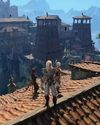
Tech Magazine ZA
ASCUM SUPREME
Developers weigh in on save scumming
4 mins
November 2024
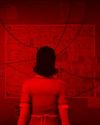
Tech Magazine ZA
DON'T SLEEP ON THIS ONE
Unearth the mysteries lurking in This Bed We Made
3 mins
November 2024

Tech Magazine ZA
WHY VAPING IS BAD FOR YOU
How inhaling this flavoured aerosol affects your lungs and impacts the body
3 mins
November 2024
Listen
Translate
Change font size

